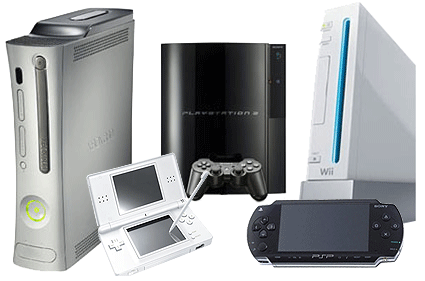Nintendo recently announced that forecasts sales numbers for annual Nintendo Wii console sales will be adjusted to 10 million units from 12 million units.
Does that mean the Nintendo Wii is now obsolete to make way for the upcoming release of the Wii U next month? Before we look at the reasons the Wii might seem “obsolete” let us look at that word first. “Aging”, “ancient”, and “outdated” come to mind. “Unusable” and “useless” also bring up more ideas. I may not have all the newest consoles, but that does not mean the ones I have are unusable/useless.
We let these consoles/games fade into the sunset until it has a valued use again (e.g. building to large value on eBay, nostalgic moment with family/friends, etc.). Sometimes the archiving experience can create as much interest or more than the initial product launch.
The recent handheld Supaboy Super Nintendo console made those gray cartridges more relevant…the sales might determine how relevant. Without a working SNES, we can rely on this new iteration, which offers us new experiences.
We have become master media remediators. If we cannot afford the latest replacement, then we retain the previous version or a similar version. We recently decided to move our Wii downstairs because we have the PlayStation 3 upstairs for blu-ray viewing, streaming, etc. We certainly won’t forget about one console or the other. We simply expanded our options. Our house has now become an arcade that we begged our parents to drive us to as kids.
Obsolete describes something that is no longer being used or is out of date. Is the Wii obsolete or about to be? Perception is a key part of our outlook (e.g. PlayStation 3 service outage, etc.). Satoru Iwata, the president of Nintendo, said “We do not think that the combination of a game system and dedicated software will last forever. However, we do not believe that hardware dedicated to gaming shall (become obsolete and) perish in a few years. I personally think that kind of scenario is unthinkable”.
Using the word obsolete helps people create the perception to get the latest console like the PlayStation Vita handheld console. When we define something, then what are we defined by? Price? The media? Our own thoughts?
Just because a game is not featured prominently in the store, would we then not want it anymore? We do not want to waste any money, but have certain limitations because we are dependent on gamemaker offerings. This fact cannot limit us either…like any technology, which is still a tool only as good as the user.
I still use my GameBoy Advance, given the right occasion. It works. I can share experiences on it with my family and friends. That’s all that matters. It’s also familiar, which brings comfort, but also may be less interactive unless I have a new game for it.
The recent Sony Ericsson Experia Play is another key perception example that might have satisfied some company expectations, but eventually became a dissatisfying user experience due to a lacking game library, high cost, etc.
Gamemakers must understand the gamer for optimum success, which is why gamers/users have increasingly enjoyed so much more choice, influence, and power. I feel game sales ultimately drive the “obsolete” movement because they depend on knowing the gamers’ desires and needs to fulfill these perceived desires.
Gamemakers strive to entice users with new experiences so their products can create a deeper, more interactive experience (e.g. touch controls on the PlayStation Vita back, etc.). This experience requires more mental investment from the user…ranging from joyous to frustrating.
Future releases (“PlayStation 4”, “Xbox 720”, etc.) will likely create great interest, but as you consider your next big console purchase – consider yourself, and take stock of your “obsolete” game library and console collections.

